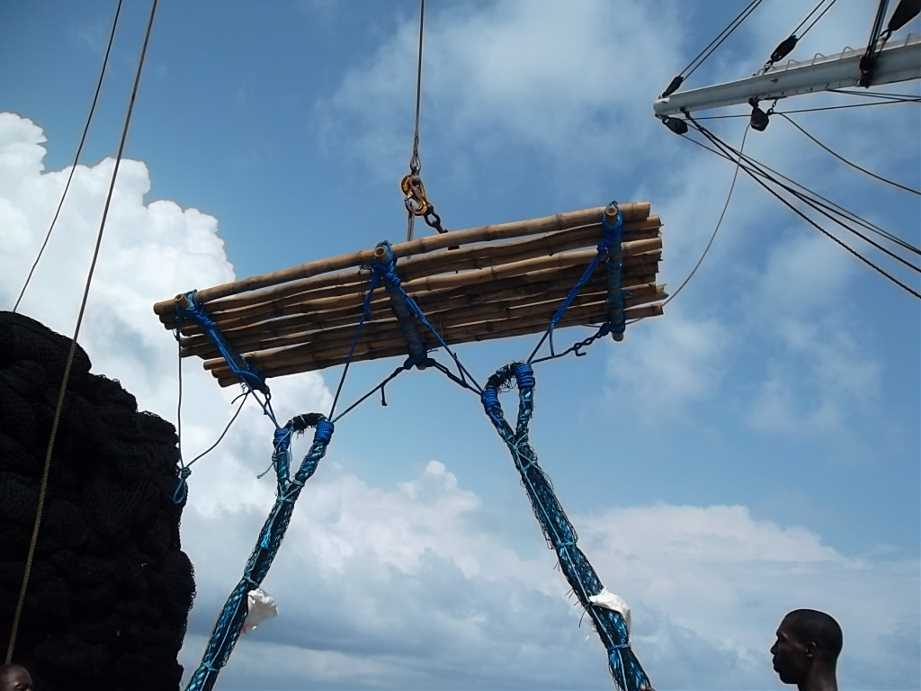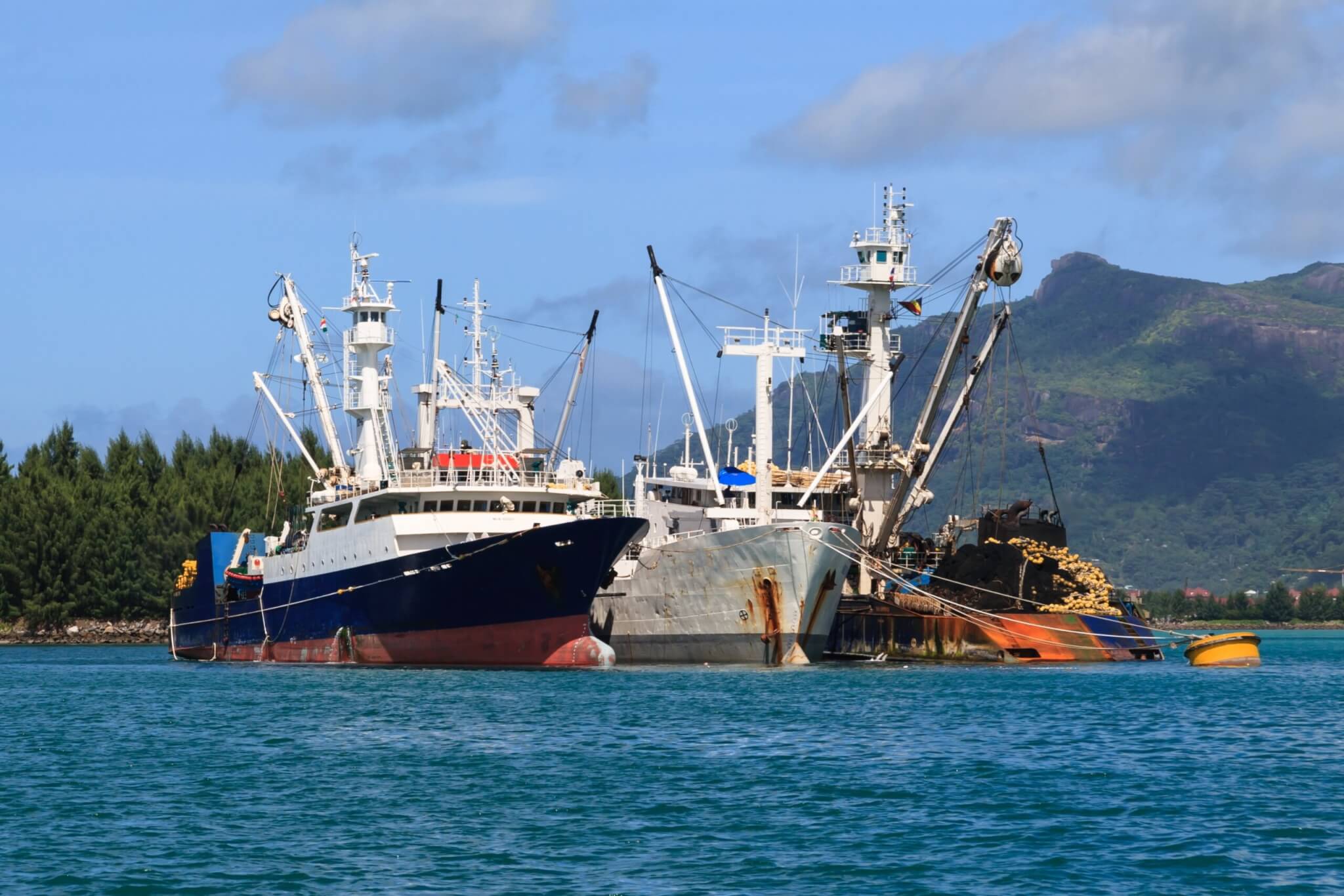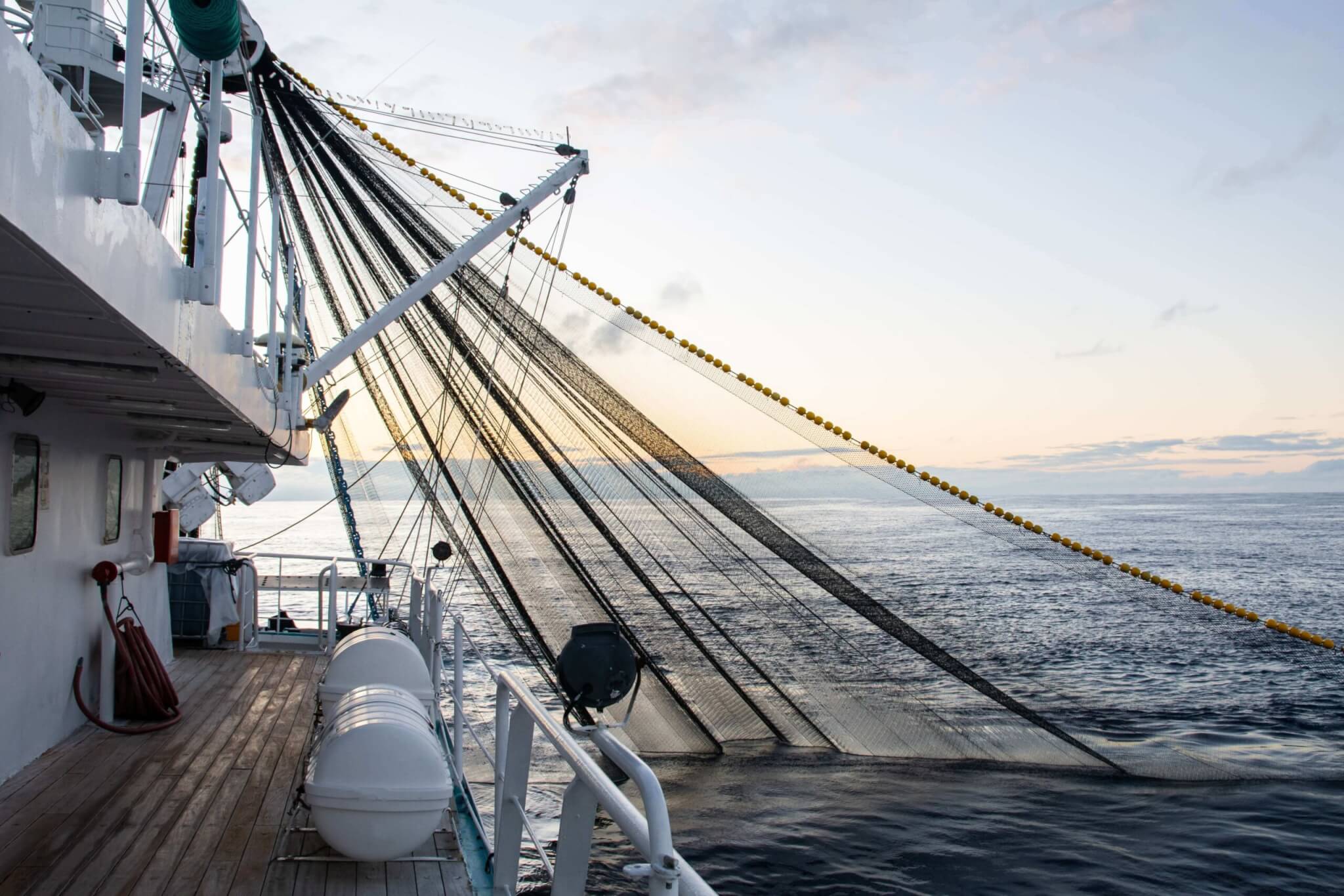
Protecting Tropical Tunas in Atlantic Ocean Fisheries: Stronger Management, Better Data Are Key
In the Atlantic Ocean region, managers will soon have the opportunity to improve the sustainability of their tropical tuna fisheries. And given the inaction at last year’s meeting of the International Commission for the Conservation of Atlantic Tunas (ICCAT), this year’s to-do list is especially urgent.
Bigeye and Yellowfin Stock Health Must Improve
ISSF is again urging action to protect two tuna species in the Atlantic Ocean region — bigeye and yellowfin. The latest data definitively indicate that the region’s bigeye tuna stock is overfished and subject to overfishing.
Meanwhile, a recent, more optimistic assessment of yellowfin tuna is due only to changes in data models and assumptions — not to better management. The yellowfin stock has been declining and will soon become overfished if recent catch levels continue. For both bigeye and yellowfin, the total allowable catch or TAC (a control measure that limits the overall catch for a specific fish stock, as agreed to by managers) has been surpassed in recent years. Exceeding a TAC diminishes the ability of a stock to rebuild to healthy levels.
Our organization, the International Seafood Sustainability Foundation — in an appeal echoed by our many stakeholders — is therefore asking fisheries managers at ICCAT to act decisively at their annual meeting this month. We urge the adoption of stock-specific management measures for yellowfin and bigeye that are consistent with scientific advice, including:
- Appropriate and fully-allocated TAC levels
- Capacity limits that are commensurate with the TAC allocations
- Provisions to ensure catches are in compliance with the TACs
- Procedures to identify and sanction violations of the current TAC allocations
Further Conservation Measures to Reduce Bigeye, Yellowfin Mortality
In addition to the above actions, ISSF and its partners are calling on ICCAT to adopt complementary conservation measures that can reduce the mortality of bigeye and yellowfin tuna in the purse seine fishery. Such measures include: strengthened FAD management, limitations on the use of supply and support vessels, and expanded time/area closures and effort controls such as a seasonal closure.
ICCAT must strengthen its management of its tuna fisheries by also adopting in-season monitoring of tuna catches, including discards, to prevent vessels and fleets from exceeding catch limits.
FAD Management Is Fundamental to Healthy Fisheries
Our focus on strengthened measures to improve bigeye and yellowfin stock health includes better FAD management at ICCAT. With approximately 50 percent of the Atlantic’s tropical tuna caught using FADs, progress toward sustainable tuna must include improving how fisheries managers regulate FAD use. Strengthened FAD management can address overfishing as well as effective tuna management overall.
Unfortunately, managers at ICCAT are severely constrained in their work to manage FADs due to a lack of data. Despite a long-standing requirement for the submission of FAD data for scientific use, only a handful of the fishing nations operating in the ICCAT region are submitting these required data each year. What little data is submitted is often incomplete, which hinders stock assessments and broader fisheries analyses by the ICCAT scientific committee.
Consequently, our list of FAD management requests includes data-focused asks; specifically, we urge ICCAT managers to:
- Review member country compliance with FAD limits and reporting obligations and take corrective measures, including the adoption of procedures to identify and sanction non-compliance with these requirements
- Require the submission of FAD position data and acoustic records from echo-sounder buoys to national fisheries departments on a real-time basis and to national research institutes on a time-delay basis
- Adopt a FAD marking scheme based on the FAO Guidelines on the Marking of Fishing Gear to apply to all FAD deployments, regardless of vessel type
Consistent with our work to reduce marine ecosystem impact from commercial fishing, we’re also asking that ICCAT act at this year’s meeting to: transition toward the use of fully non-entangling FADs; require the use of biodegradable materials in FADs; and require fleets to remove entangling FADs found in the water. ISSF has resources to support ICCAT in these areas, including our Non-Entangling and Biodegradable FADs Guide and Recommended Best Practices for FAD Management in Tropical Tuna Purse Seine Fisheries.
As we head off to the ICCAT meeting, we hope you will join our efforts to urge progress on these priorities by advocating for action before and during the upcoming meeting. You can do this by meeting with:
- National delegations that will be tabling proposals and making the decisions at the meeting
- Vessel and industry representatives that attend as part of these national delegations and who exercise influence over the positions their governments take
- FIPs, tuna processors, retailers, and buyers to encourage them to also advocate for this concrete action at ICCAT
We continue to work cooperatively with all ICCAT delegations to achieve positive results for the tunas and ecosystems of the Atlantic Ocean.


